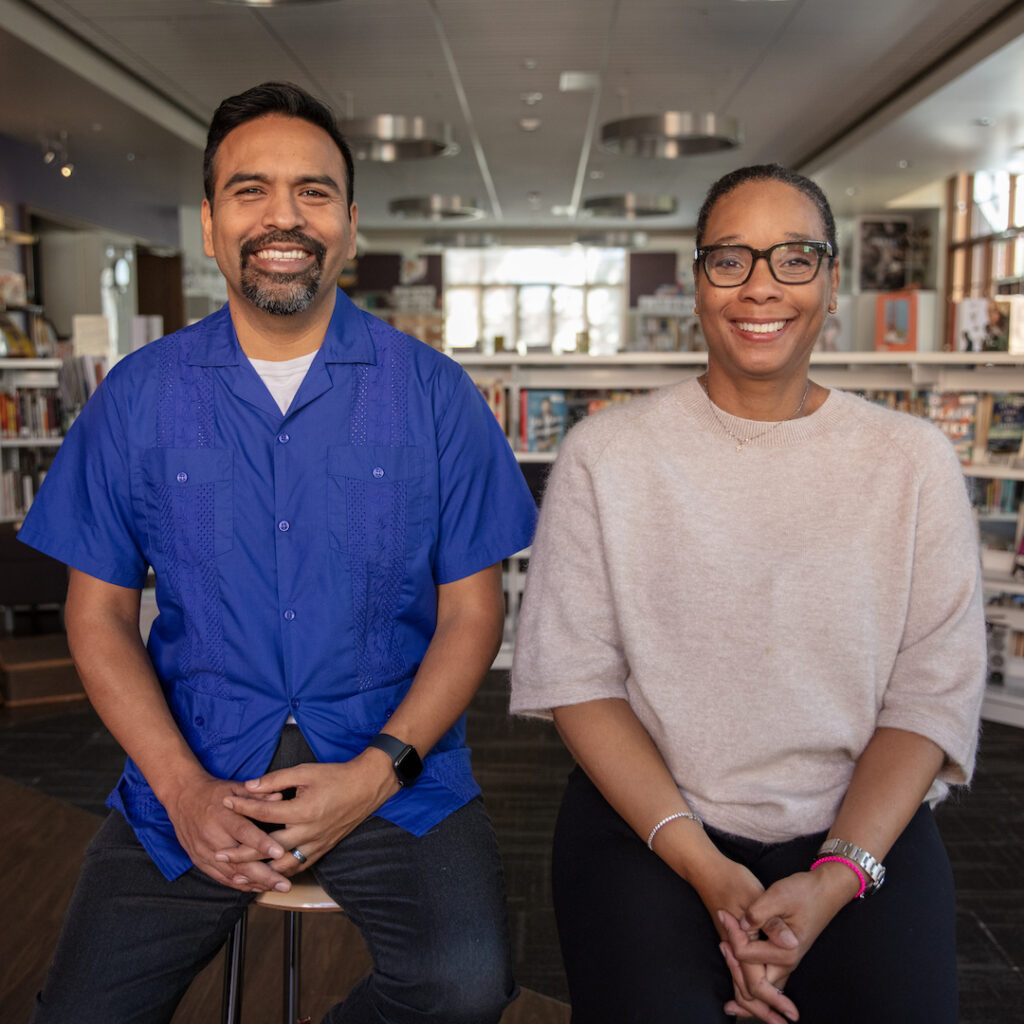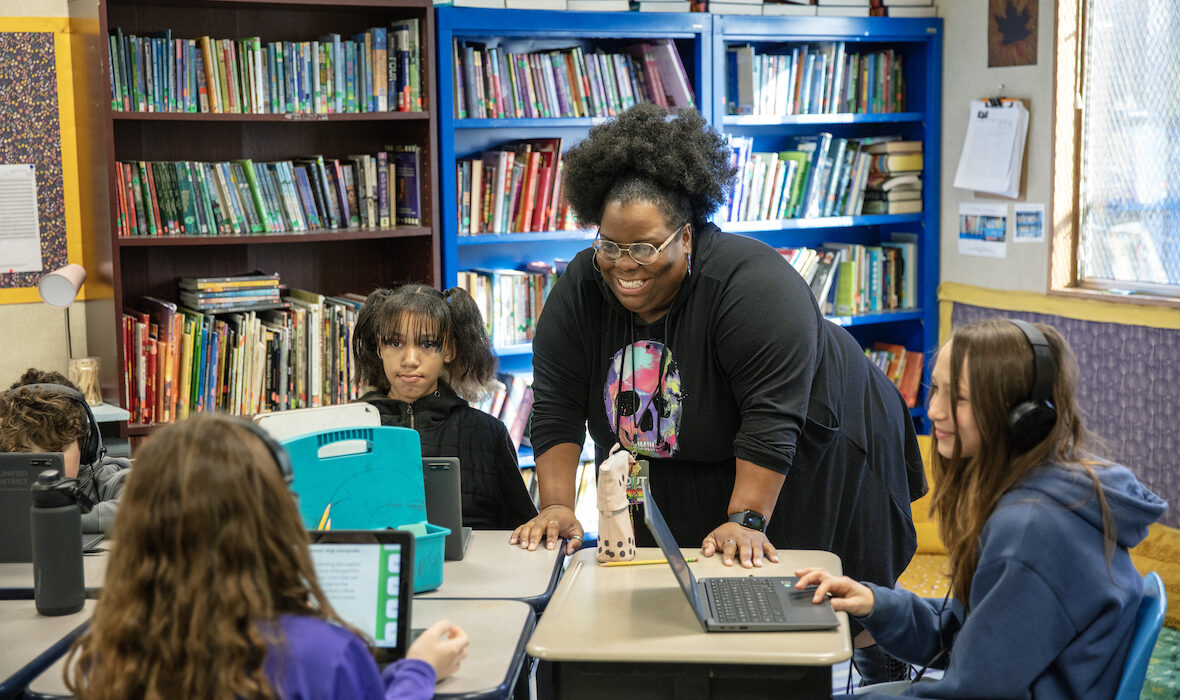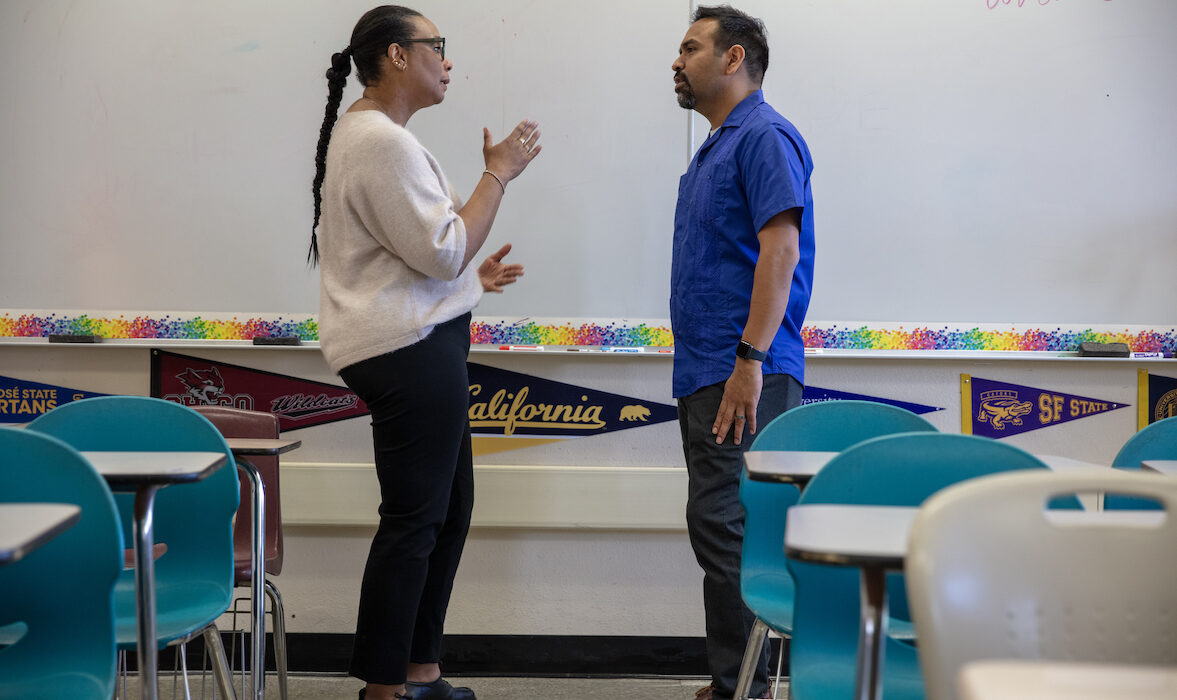Addressing California’s teacher shortage through on-the-job degree and credential programs
Overview
California is facing a teacher crisis, with 10,000 vacancies and 20% of educators planning to leave in the next three years. Students enter schools every day with temporary or underprepared teachers, and many do not see leaders who reflect their own cultural background. For Elizabeth Baham, Ed.D., it wasn’t until college that she was finally taught by a Black educator. This experience propelled her to enhance access to education for all. In 2015, Baham joined Reach University, an organization that is tackling California’s teacher shortage by partnering with schools to train and place aspiring teachers – who are often working in classrooms as aids or other non-teaching personnel – in critical job vacancies. Driven to nurture young leaders of color, Baham now serves as the University Provost and Chief Academic Officer.
“Reach aims to tackle barriers that have hindered individuals of color and those from within the community from becoming teachers. We are deeply committed to filling vacancies with teachers and leaders that reflect the cultural backgrounds of the students they serve.”
As a young adult, Héctor Camacho Jr. felt drawn to teach but didn’t know the best way to become a teacher, or how to pay for it. Nine years and over $100,000 in student debt later, he finally became a teacher. Determined to support others with similar aspirations, and similar barriers, Camacho joined Reach University in 2022 and now serves as Senior Vice President. Together, Baham and Camacho have expanded the organization’s reach throughout the state, and obtained accreditations that affirm the University’s credibility and allow it to leverage federal funding to keep programs affordable for candidates. By creating accessible, job-embedded pathways to a degree and credential, Reach is preparing high-impact teachers and leaders who reflect the diverse students they serve.
“There is a workforce that already exists in the schools. If they are just provided an option to pursue a teaching credential, many of them will take it and we will solve this shortage”
Primary Regions Served
Challenge
- With over 10,000 vacancies and 20% of educators saying they will probably leave within three years, California is facing a significant teacher shortage.[1] [2] This lack of prepared, qualified teachers disproportionately impacts schools in rural and urban areas, students of color, and communities with lower income levels.[3]
- The teacher shortage leads to larger class sizes, fewer academic and extracurricular offerings, and lower-quality instruction which all limit a student’s access to individualized attention, academic achievement, and ability to build meaningful relationships with their teachers.[4]
- Only 25% of teachers are Black or Latino, compared to 60% of students.[5] This lack of teacher diversity further impacts student experiences and outcomes.
- Paraprofessionals and other school employees could bring diversity and expertise into the classroom. However, barriers like limited time, financial resources, and stringent credentialing hinder their transition into teaching.
Innovation
- Founded by Bay Area educators in 2006, Reach University addresses California’s teacher shortage by offering on-the-job degree and credential programs that allow candidates to earn their degree and teaching credential while working full-time at a school.
- Reach partners with schools to identify paraprofessionals, teaching assistants, and other non-teaching employees working at schools who are already committed to students and the community.
- Reach’s programs focus on relevant coursework, practical application of knowledge, on-the-job coaching, and evidence-based evaluation. Candidates receive comprehensive support through a dedicated advisor and school-based mentors.
- Reach University’s undergraduate apprenticeship degree provides an affordable, debt-free pathway for school employees to earn a degree and credential. Candidates pay no more than $75 per month for fees, books, and materials.
Impact
- Under Baham and Camacho’s leadership, Reach has doubled its California undergraduate enrollment each term for the last three cycles. Reach’s partnership outreach approach has enrolled 2,000 candidates – 40% of whom are Latino and 15% are Black.
- Baham has guided the University’s evolution from a nonprofit to a recognized Institution of Higher Education. In 2017, Reach achieved accreditation, affirming the institution’s credibility, and improving candidates’ access to financial aid and credit transfer.
- Camacho has expanded the University’s presence in California by forming partnerships with over 250 school systems, including establishing rural connections in Siskiyou, Modoc, Shasta, and San Joaquin counties.
- Teachers trained by Reach University remain in the profession at significant rates: 94% complete their first year of teaching and 81% are still teaching after five years, compared to about half of new teachers nationally.[6]
Opportunity
- The State of California is currently investing over $1 billion in several initiatives to address the teacher shortage.[7] [8] Reach University is well positioned to leverage these opportunities and help the state expand its capacity to recruit, prepare, and retain diverse teachers.
- By 2027, Reach University aims to have enrolled 10,000 educators by expanding into new regions throughout California, including the Central Valley, Inland Empire, Los Angeles, and North State.
- The success of their apprenticeship degree model has garnered interest from other impacted industries, such as nursing, to replicate the model to fill their shortages.
- [1]https://www.latimes.com/california/story/2023-04-16/californias-shortage-of-diverse-teachers-is-hurting-students-educators-say
- [2] https://www.ctc.ca.gov/commission/briefing-room/default/press-releases/2023/2023-03
- [3] https://www.gao.gov/blog/back-school-obstacles-educating-k-12-students-persist
- [4]https://learningpolicyinstitute.org/sites/default/files/body/Teacher_Shortages_Causes_Impacts_2018_MEMO.pdf
- [5] https://edtrust.org/resource/educator-diversity-state-profile-california/
- [6] https://www.edweek.org/leadership/5-things-to-know-about-todays-teaching-force/2018/10
The written profile and video reflect the work of the leader(s) the year they received a Leadership Award. Please contact the leader(s) for current information.





